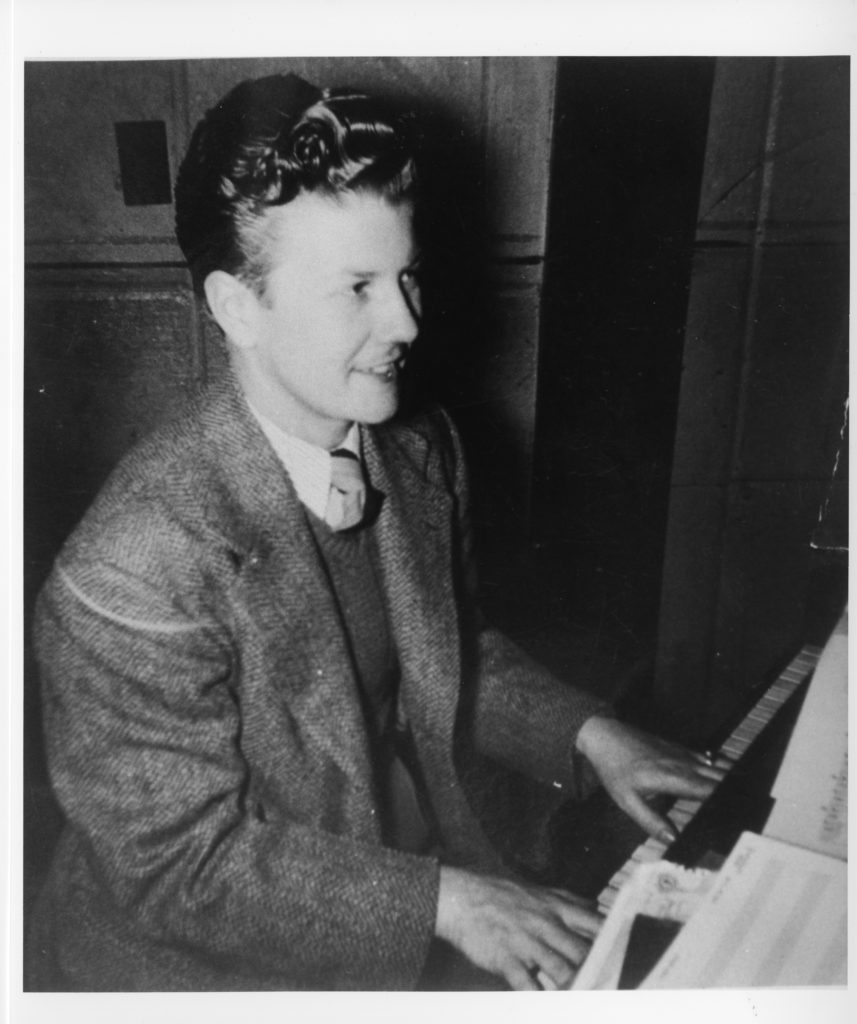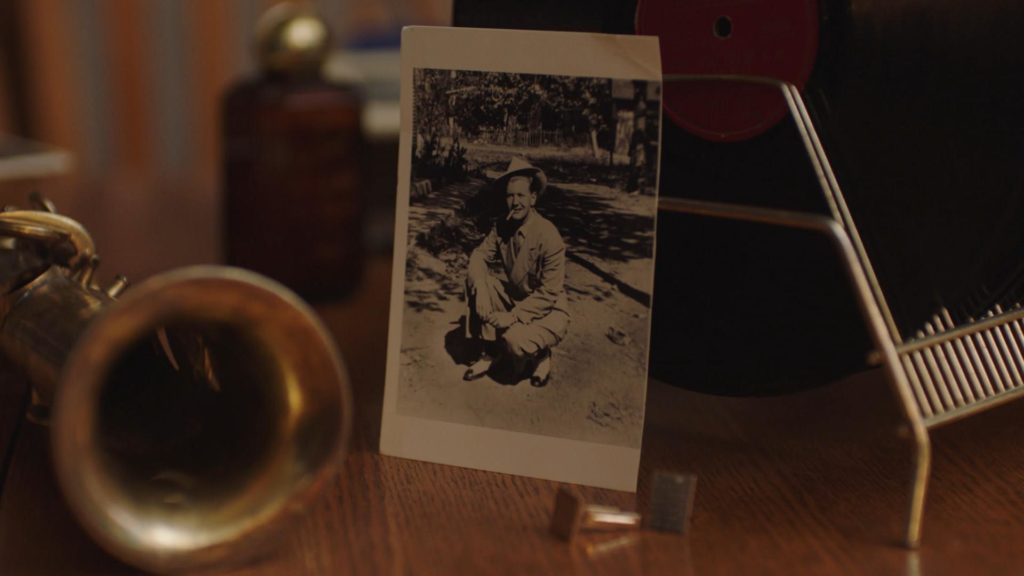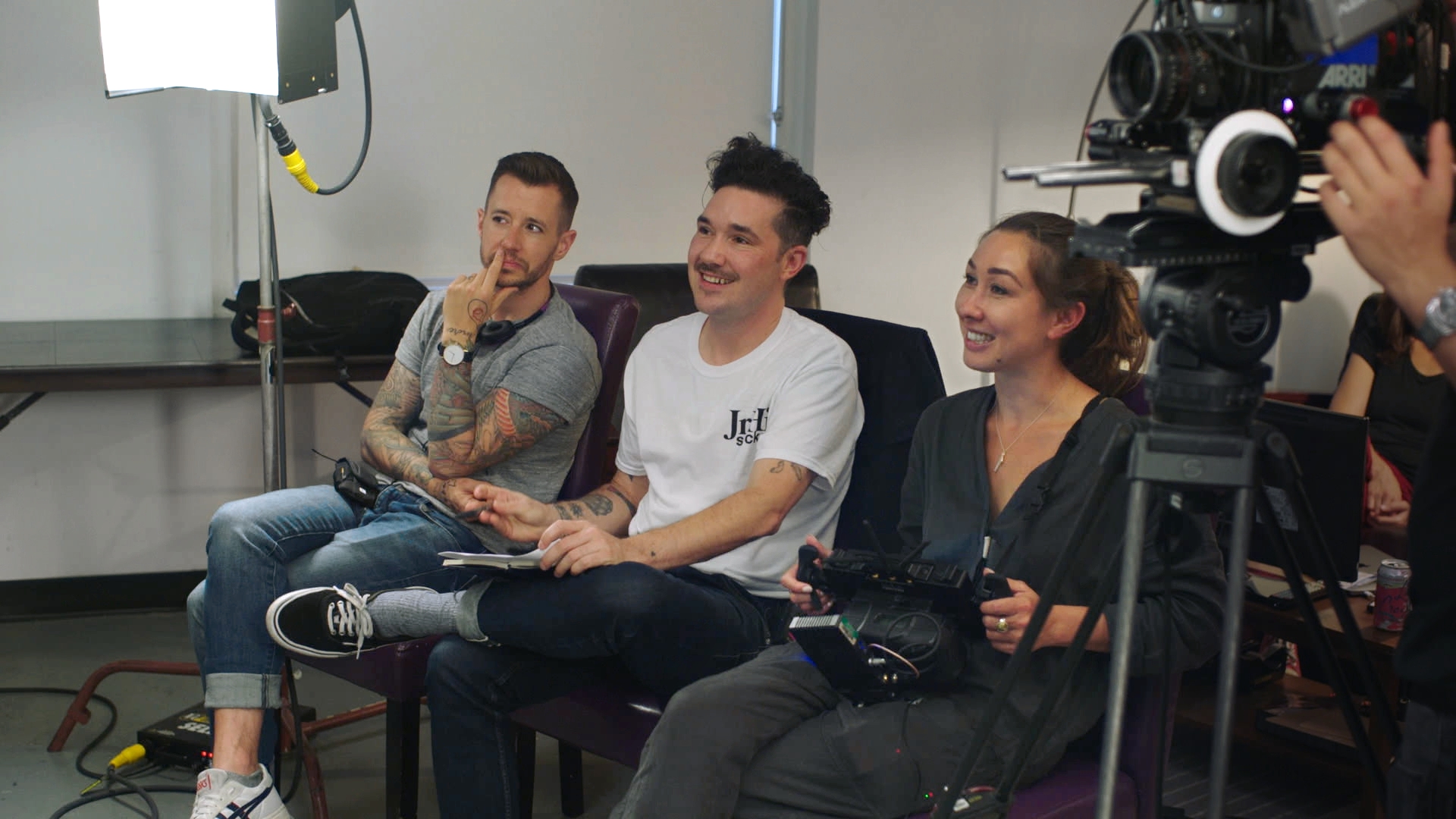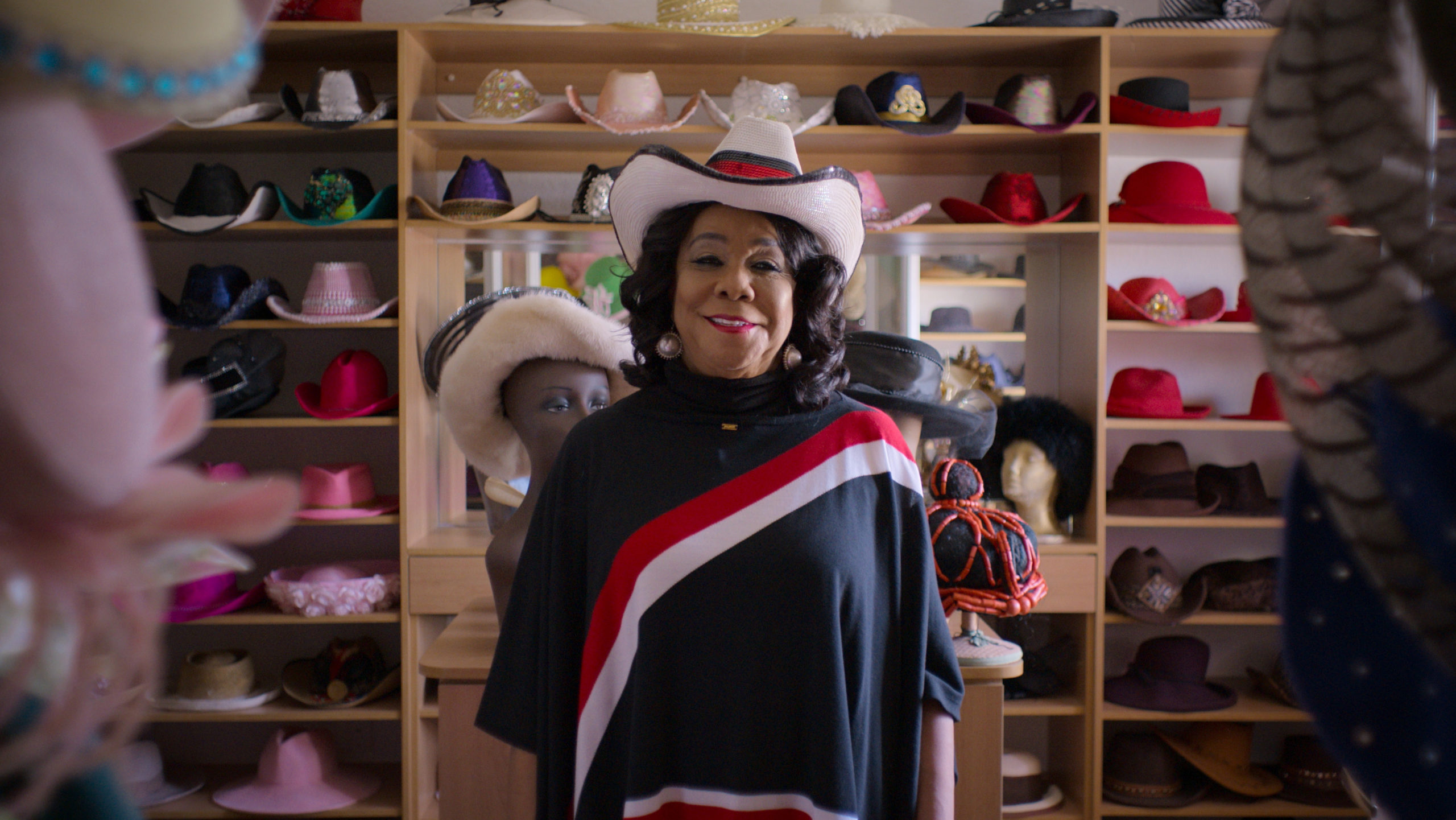Most biographical documentaries on artists are linear narratives that unravel past glories and the legacy they left behind. But No Ordinary Man, which tells the story of American jazz pianist and trans man Billy Tipton, is no ordinary music documentary. In it, co-directors Aisling Chin-Yee and Chase Joynt bring contemporary relevance by foregrounding present-day trans masculine voices.
“I’ve come to see our film as kind of a politics of recognition. So it’s not only about trans men looking back in history and finding resonance in his story. It’s about trans men finding each other on screen,” says Joynt.
In No Ordinary Man, Tipton’s story, which includes stardom in the South from the late ’30s to the end of the ’50s, multiple marriages, and the adoption of three children, is reconstructed and re-envisioned through acting performances led by contemporary trans masculine artists. These young artists read from scripts throughout the film while leading activist voices from the trans community interject to share their knowledge and opinions on Tipton’s multi-layered life, as well as the mainstream controversy that followed his death.

The scripts, written by Chin-Yee and Amos Mac, became the language that embodied Tipton and the way in which the documentary was able to assert less and instead ask the questions that needed to be asked.
“We wanted to look at his life and represent that experience from multiple points of view and experiences,” says Chin-Yee.
Early in the writing process, the collective realized there is no live footage of Tipton; all that remains are a few photos and his many audio recordings. Instead of seeing this as a restriction or a limitation, Joynt says they saw it as a creative opportunity.
“We’re not working with a container of a true archive, but rather we are thinking more expansively about what it means to find people in history and performing them in the present,” says Joynt. “I think too, if we look at the history of documentaries with trans and nonconforming subjects, so often it’s on a single person or an exemplary case, but we were thinking collectively and collaboratively with the idea of community at the centre.”
The writing team developed the scenes out of extensive research. Diane Middlebrook, the author responsible for Tipton’s only bio, Suits Me, has her archives at Stanford University and that proved very helpful to them. That gave them the factual basis for the film, but the directors knew they had to represent Tipton with a delicate touch.
“There’s a responsibility attached to that. We didn’t feel comfortable doing straight up illustrations because that comes from our interpretation and from our own bias.” Chin-Yee adds, “but because we do know him to be a trans masculine person, we wanted to look at his life and represent that experience. There were certain moments of his life that we wanted to see how it would be embodied in acting.”
The co-directors shared that all the trans masculine actors that showed up for the casting calls understood they were not exactly auditioning for a role. Instead, their various interpretations of the character of Tipton would be included in the film.
“We wanted to make sure that the expectations were clear. Which is that they were sent scenes and [would be] performing as themselves in a project about Billy Tipton. I mean some actors were brought to tears from the scenes. The film is unique because it brought that person to the present, so it’s more than a biography.”
One of Joynt’s favourite scenes in the film is when one of the actors reading and improvising from the script brings off a whole new interpretation of Tipton. Everyone behind the camera, including both co-directors, were in awe of this perspective.
“It’s a beautiful moment where we all have a conversation of the multiple interpretations of this one scene. I mean all of those scenes are up for interpretation,” says Joynt.

Another profound moment for Joynt is when he breaks the fourth wall and the viewer hears him interact with [one of] Billy Tipton’s sons. In this scene, Joynt reveals to the viewer and the son that he is a trans man himself.
“Witnessing him in the chair a few feet from me and spending intimate times with him opening up about a painful history, it felt like the most important way to meet him and show up for him in that space was to be upfront.” Joynt adds, “I just didn’t ethically understand how to move forward in our interview without disclosing to him the significance of his dad in my life and, in some ways, it was an exchange in vulnerability.”
Joynt shares how overwhelmed he felt by the incredible talent in the film and how the experience, in remaining close to its positioning in the present, is far more than just a doc for the viewer.
Since community and collaboration are both overarching themes in the doc and in the process of working on the film, Joynt and Chin-Yee’s co-direction flowed well on a creative and technical level.
Chin-Yee, who also worked as an editor on the film, knew “every detail, from every frame to pixel,” but appreciated Joynt’s knowledge and research coming into the project.
“Chase knew a lot of the people we interviewed and worked with. He comes from this great media and gender studies background so he brought a lot of intellectual artillery and guided us in terms of how to position this film,” says Chin-Yee.
Joynt adds, “I love documentaries because you always end up making a story that is far more complex than the one you initially imagined and our project is a product of the creativity and insight of those in it. It gives me a lot of faith in collaboration.”
No Ordinary Man is the only feature film with transgender filmmakers that was screened at this year’s TIFF. Despite it being something to celebrate for many, Joynt does not believe that this film is actually the first of its kind. Instead, Joynt believes it’s a matter of visibility.
“People say that I’m the first trans Canadian director to be at TIFF, but I don’t necessarily think that’s true. I think trans people have been making work for decades and have been in cinema since it existed. It’s just the new politics of visibility that are producing these moments of ‘Oh, this hasn’t been done before,’ but the legacy of these projects is never that simple.”
No Ordinary Man is in release on VOD and all digital platforms as of April 2.













